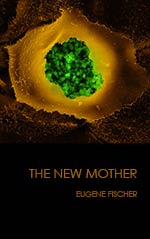
![]() bazhsw
bazhsw
12/14/2016
![]()
What a thought provoking novella this is and a worthy winner of the Tiptree award.
The premise is that there is an STD that effectively means women reproduce clones of themselves without the need of a man's sperm.
This novella manages to examine all sorts of perspectives and positions on what this would mean if this was the case in a near-future world and it crams an awful lot into it's word count.
I suppose the obvious is that this STD threatens the very existence of men. Men are no longer needed to conceive and furthermore the logical conclusion of this STD is that there will be fewer and fewer men born thus potentially rendering them extinct.
There's an obvious feminist reading of this and flipping of gender roles and expectations. Some of the male politicians in the book are represented through a 'Man's Rights / Religious Right' perspective and are rightly deplorable (in my opinion). That said, there is something there - should natural selection take place and eliminate males or should 'something' be done to preserve the male of our species. You can definitely read a sense of male threat in here.
Of course there are plenty who see the 'clone girls' as 'not human' and we see the flip-flopping of pro-life campaigners now calling for the abortion of 'clone girls'. We view the story through the eyes of women who have the condition - her children are still her children and deserve the right to life and happiness as other children.
The central character is a lesbian of colour who is having a baby with her partner, the father's identity is not known, having come as a donor. Fischer makes his point with a sledgehammer about what it really means to be a mother (or a parent for that matter) and actually challenges one to consider societies own assumptions and prejudices.
I really liked the exploration as to what this condition would mean in the third world. In countries with a good standard of healthcare a woman can have many of her children relatively easily. In the developing world where childbirth is potentially life threatening and a woman has no choice as to how many of her girls she will give birth to this will be significantly reduce her life expectancy, as well as reducing the male population this reduces the life expectancy of women.
One thing that isn't touched on is the passing on of identical genetic code. For most this will not be an issue, but what about those with genetic disorders? Does this condition improve general wellbeing by 'isolating' genetic disorders and mutations or does it condemn future generations of girls to her Mother's genes?
What I did find interesting was the notion of choice, and it's a point strongly made. On one level there are good cases for inoculating men and women who carry the condition should a cure be found (and the book explores quite horrible notions of putting women in camps, ostracising them etc.). However, I think there is a strong case to be made for, 'should a cure be found then it should be for a woman to decide'. The book notes that a man is not needed to raise a child, logically why should a man be required for a woman to conceive her child.
The novella can be quite ugly at times. Fischer doesn't pull his punches. Even though men spread this condition the 'blame' is firmly rooted in women. It's HER fault screams through the novella, even rape victims. The sad thing is that this is not that much of a surprising position. Fischer does a great job holding up a mirror to how society views women.
Great stuff, would love to see this develop into a longer novel.